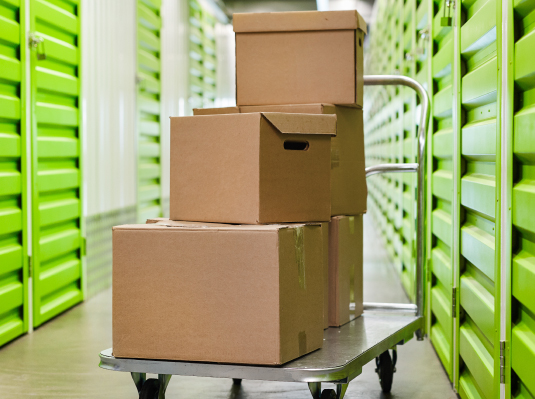
What is off premises personal property?
Off premises personal property coverage refers to the portion of your personal property coverage that is allotted for belongings not held on your property. This applies to items you are temporarily keeping in a storage unit, furniture that you are temporarily leaving with a relative, or a kid's belongings whenever they move away to college.
It is always recommended that you first check with your agent to ensure that off premises personal property coverage is included on your home policy. Typically, this coverage is set at a minimum of 10% of your total personal property coverage limit. For example, if you have $300,000 in personal property coverage, your typical home insurance policy would have coverage for $30,000 in off premises personal property.
Under what circumstances are loss or damage to my belongings covered?
There are many different scenarios where your home insurance would cover your personal property away from your primary home:
Scenario 1:
A family is moving into their new home and keeping a fair amount of their belongings in storage to reduce the clutter and stress of moving. Unfortunately, they received a call from the storage company notifying them that a small fire had occurred in the unit. After taking inventory, they found that roughly $13,000 of personal property had been damaged. Thankfully, they had $20,000 in off premises personal property coverage, so after paying their deductible, they were able to replace their damaged belongings and finish moving into their new home.
Scenario 2:
A couple’s college-aged son suffered a water leak in his dorm room, and many of his personal belongings and furnishings were ruined. After taking an inventory, they found that there was close to $10,000 in damage. The couple had a personal property limit of $110,000, which resulted in $11,000 in off premises personal property coverage. They were able to refurnish his dorm room and replace his personal belongings.
What kind of damage is covered?
Your off premises personal property will likely covered you for the same perils that your home is covered for. One of the major circumstances not covered is accidental breakage, so if you’re loading stuff from your storage unit into your vehicle and break something, it would not be covered.
How are my belongings covered in a move?
A common misconception is that all belongings are covered in the moving process. Many insurance companies exclude coverage for your personal items while they are being transported by a moving company. The following are a couple different options to make sure your belongings are taken care of:
- Moving Company’s Insurance: Moving companies will typically carry their own insurance to protect your belongings in transit. This is something you should always ask your moving company prior to hiring them. Otherwise, you may find yourself out of luck if something were to happen to your belongings in transit.
- Homeowners Policy Endorsement: If insurance through a moving company is not an option, call your insurance agent to see if you can add an endorsement to your current home policy to cover your belongings during your move. Some insurance companies will offer moving insurance to fill the gap left by the home policy to cover your personal property while it is being handled by movers.
It’s important to understand how your belongings are covered in all stages of the moving process, as accidents can happen at every step. Reach out to your insurance agent to understand how your specific policy may protect you with off premises property coverage.
The contents of this article are for informational purposes only. You should not act or refrain from acting based on this information without first consulting a Goosehead licensed agent. We disclaim all liability for actions taken or not taken by you based on the contents of this article which is provided "as is." Goosehead makes no representation that this content is error-free
Get a Quote

